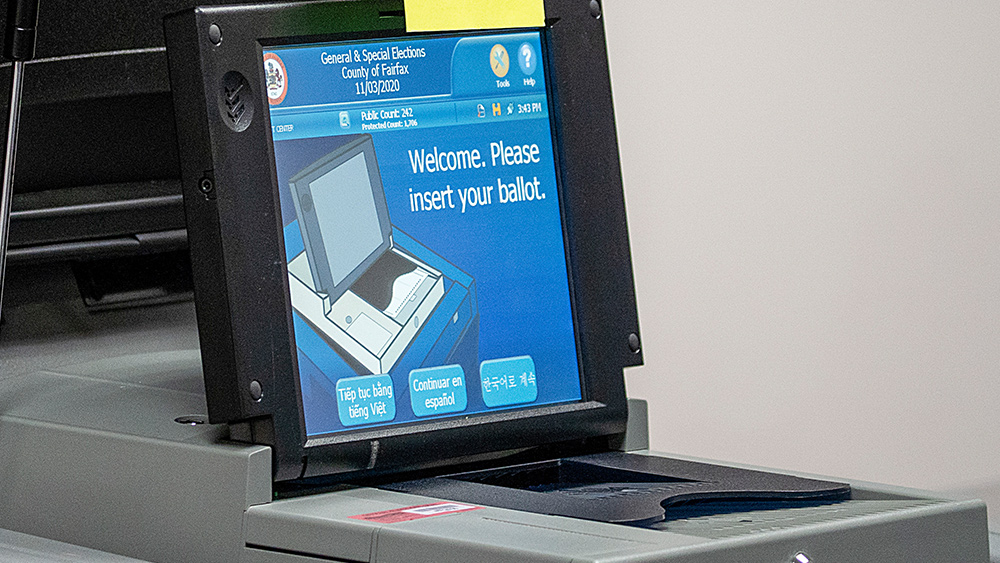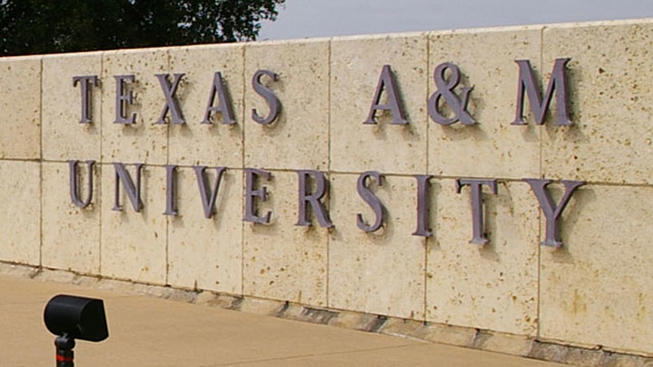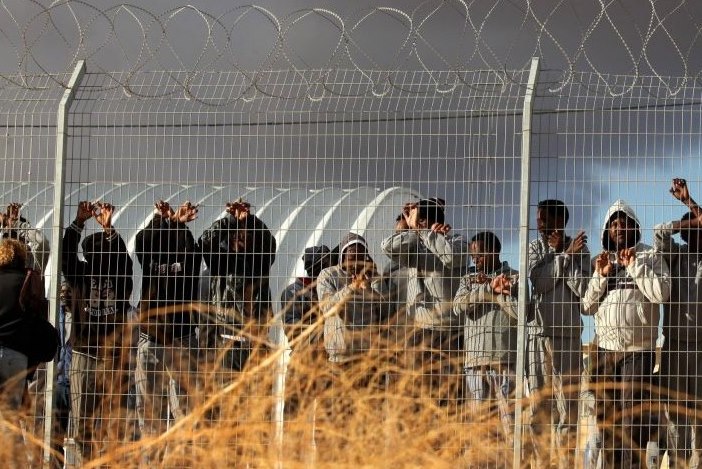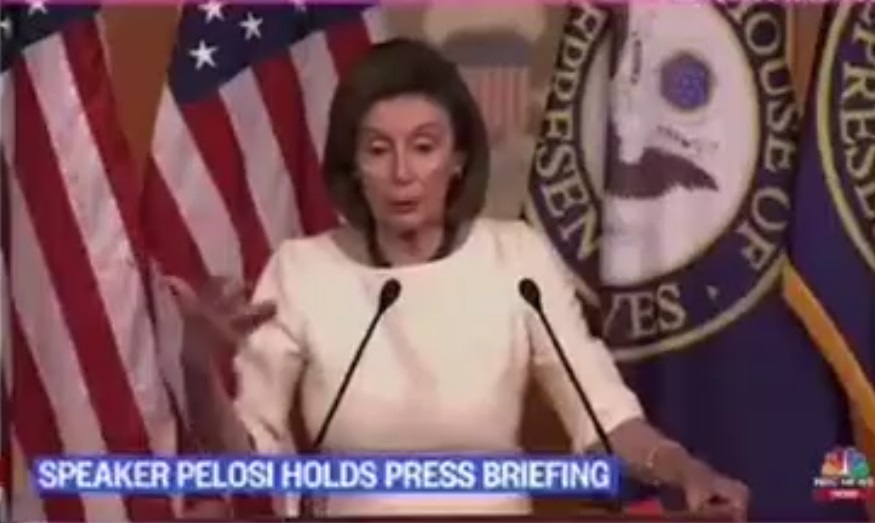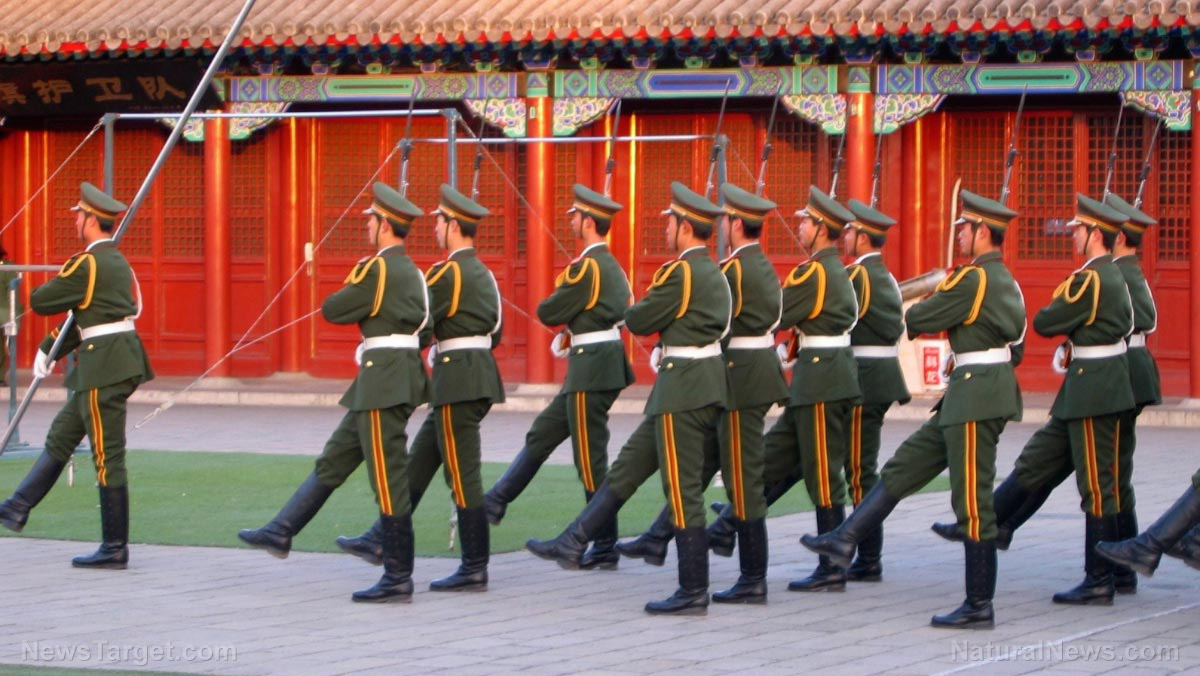Pinkerton: What happens when a communist regime penetrates our government
12/15/2020 / By News Editors

Explosive Accusations
The U.S. Congressman, a Democrat, is accused of being an agent of a foreign communist power. As one accuser says of the lawmaker, “I think he is a spy.” The Congressman denies it, and yet eventually, it’s demonstrated that he has been, in fact, engaged in espionage on behalf of foreign communist paymasters.
(Article by James P. Pinkerton republished from Breitbart.com)
Perhaps the reader might be thinking that this case is connected to the People’s Republic of China; after all, its many spy programs have been in the news a lot lately—including just this past week.
On December 1, John Ratcliffe, the former Member of Congress whom President Trump appointed as Director of National Intelligence (DNI) earlier this year, wrote in The Wall Street Journal, “The People’s Republic of China poses the greatest threat to America today, and the greatest threat to democracy and freedom world-wide since World War II.” He added, “The intelligence is clear: Beijing intends to dominate the U.S. and the rest of the planet economically, militarily and technologically.”
In addition, in a December 3 interview with CBS News’ intelligence ace, Catherine Herridge, Ratcliffe added more detail, asserting that the Chinese have proven themselves capable of using blackmail, bribery, and covert and overt influence to ensure that the U.S. enacts laws and policies favorable to China.
Then, on December 8, came a pair of revelations that are perhaps traceable to Ratcliffe’s intelligence work. The New York Post reported on a video, taped in November, in which a Chinese official, Di Dongsheng, vice dean of the School of International Relations at Beijing’s Renmin University, said:
I’m going to throw out something maybe a little bit explosive here. It’s just because we have people at the top. We have our old friends who are at the top of America’s core inner circle of power and influence.
Yes, Di’s words are, indeed, explosive—the idea that China’s friends are “at the top of America’s core inner circle of power and influence.” So who might these friends be? Di didn’t say, exactly, although he mentioned Hunter Biden, who is certainly well-placed and has had plenty of business activity in China, along with Chris Heinz, step-son of John Kerry, whom Joe Biden has slated to be his climate-change czar.
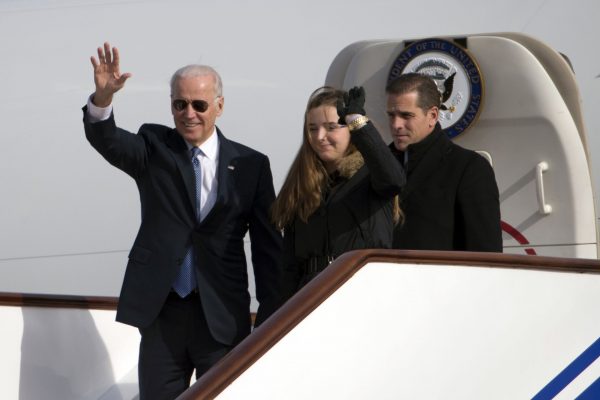
U.S. Vice President Joe Biden, left, waves as he walks out of Air Force Two with his granddaughter Finnegan Biden and son Hunter Biden at the airport in Beijing, China, on Dec. 4, 2013. Hunter Biden’s private equity firm secured a billion dollar deal with the state-owned Bank of China ten days after accompanying his father on this trip to China. (AP Photo/Ng Han Guan)
Of course, Di’s statements haven’t been verified, let alone proven. So it’s possible that some or all of these allegations will be judged to be misleading, or perhaps even as outright fake news. Or, they might someday be regarded as a disinformation plot—perhaps, who knows, aimed at throwing investigators off the trail of someone else. As they say, espionage and counter-espionage are a wilderness of mirrors.
In that same spirit of curious but cautious, we must, at least for now, also put a caveat in front of Tuesday’s bombshell scoop of Axios, headlined, “Suspected Chinese spy targeted California politicians.” As that piece detailed, early in the last decade, a female Chinese national named Fang Fang (also known as Christine Fang) deliberately networked with various Golden State politicians, including Rep. Eric Swalwell, best known for his ill-starred bid for the 2020 Democratic presidential nomination.
Moreover, the Axios report added:
Through campaign fundraising, extensive networking, personal charisma, and romantic or sexual relationships with at least two Midwestern mayors, Fang was able to gain proximity to political power. [emphasis added]
In fact, one unnamed intelligence official told Axios that the Fang case “was a big deal, because there were some really, really sensitive people that were caught up.” (Swalwell, we might note, has a spot on the powerful House Intelligence Committee.)
These are some tantalizing suspicions, aren’t they? For his part, Swalwell denies any wrongdoing–although in an interview with Politico, he pointedly refused to discuss his relationship with Fang (Gee, how should we interpret that?). For her part, Fang reportedly left the U.S. in 2015, returning to China—where she will most likely be unavailable to investigators.
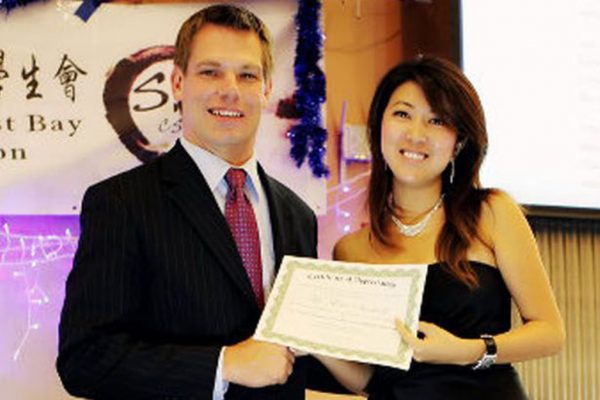
Rep. Eric Swalwell (D-CA) with suspected Chinese communist spy Christine Fang (Facebook)
Indeed, as of now, it’s an open question as to how much more we’ll learn about any of these cases. After all, Ratcliffe is a Trump appointee, and Joe Biden has already named a successor, Avril Haines, for the DNI post.
So what will Haines do once she’s in office? Will she have anything notable to say about China’s campaign against the U.S.? Will she provide us with more details about Di’s comments? Or about Fang’s activities? Or about Swalwell—and what he did or didn’t do? And what about that pair of randy Midwestern mayors? Will we ever find out their names?
We don’t yet know the answers to those questions, of course, although we do know that Joe Biden has been notably non-communicative about one China-connected figure close to him: his son, Hunter Biden.
Yes, Joe Biden has said that son will not be involved in any foreign money-making schemes; however, as Breitbart News’ Joel Pollak has pointed out, the elder Biden has made that pledge before and not kept it. (And we can add that such restrictions are hard to enforce; what, after all, constitutes a foreign scheme, as opposed to just, you know, Hunter Biden living his usual high life in a $12,000-a month pad in the Hollywood Hills?)
In the meantime, we should know that if something has happened before, that raises the likelihood that it can happen again. As the philosopher Hegel explained, the actual proves the possible.
And actually, there was once a member of Congress who was spy for a communist country. So yes, today, a communist spy in our midst is a possibility.
An Explosive Accusation, Proven
It was in the 1930s, when a Democratic Congressman from New York City, Samuel Dickstein, operated as a paid spy for the Soviet Union. As detailed in a 1999 book, The Haunted Wood: Soviet Espionage in America – The Stalin Era, by Allen Weinstein and Alexander Vassiliev, Dickstein delivered secrets to his NKVD (a predecessor to the KGB) handler, Peter Gutzeit, a Russian operating in the United States. Gutzeit had also spread his tentacles into Hollywood and other leftist hotbeds. In 2014, another intelligence historian, Peter Duffy, summed up the case against Dickstein in an article headlined, “The Congressman Who Spied for Russia.” (Duffy dug up the quote, used in the first paragraph of this piece, “I think he is a spy,” said by a contemporary of Dickstein’s.)
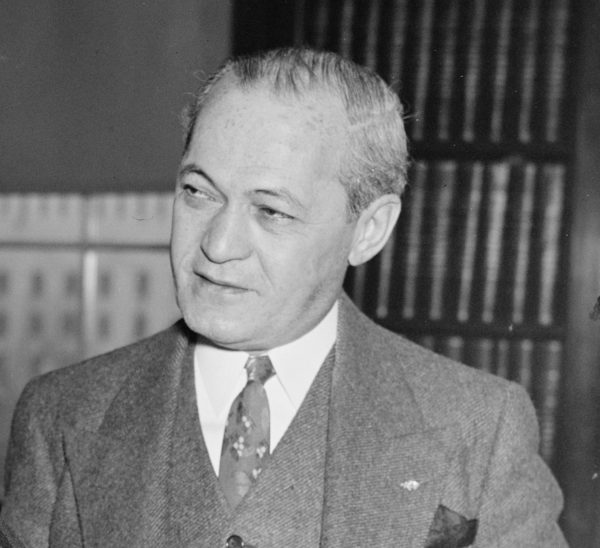
Soviet spy Rep. Samuel Dickstein (D-NY), 1937. (Library of Congress)
John Berresford, an independent historian whose extensive research on the Hiss case has been showcased at the Smithsonian Museum, sees similarities—and dissimilarities—between America’s situation in the Cold War with the Soviet Union and today in what’s emerging as a new cold war with China.
Among the dissimilarities is that the Soviet Union back then had the benefit of the international appeal of communism. That is, many idealists—wrongheadedly, of course—saw communism, then embodied by Josef Stalin, as the better system. By contrast, in our time, as Berresford says, “No one is ideologically committed to President Xi Jinping.”
Yet on the other hand, China has far-flung business interests across the world, as well as plenty of money. And money, all too often, can make things happen, spy-wise. As Berresford puts it, “The words may change but the song—that is, blackmail and seduction—remains the same.” Indeed, the essence of spycraft is temptation: if not ideological, then financial or sexual. Anything that someone might want, a spy-recruiter might provide.
Proven Countermeasures
So what can we do about Chinese espionage? We know what Ratcliffe and the Trump administration want to do—they want to get tough. So now we’ll have to see the stance of the Biden administration.
Yet the Bidenites should realize that there’s a price to be paid for laxity on national security—including a political price. For perspective, we might think back, again, to the 1940s. We had been allies with the Soviet Union during World War II, based on the hard-nosed calculation that Hitler’s Germany was the greatest enemy and that we needed all the help we could get to beat him.
Yet after Germany’s surrender in May 1945, it soon became apparent that the Soviet Union was also a grave threat. And the threat wasn’t just the Red Army in Europe; it was also the “fifth column” of communist spies in the U.S. Most, if not all, of those spies, including Alger Hiss, had penetrated the federal government during the administration of Franklin D. Roosevelt from 1933 to 1945.
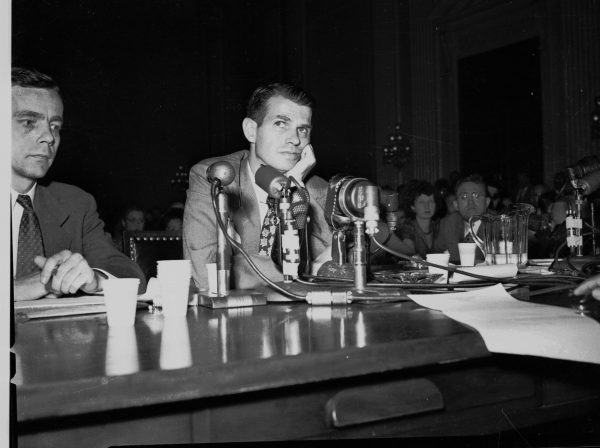
Soviet spy and Democratic administration official Alger Hiss testifying before the House Un-American Activities Committee in Washington, DC, on Aug. 25, 1948. (AP Photo)
So now it was the challenge of FDR’s successor in the Oval Office, Harry Truman, to address the communist threat. Truman, after all, wanted to be elected in 1948, and he couldn’t hope for such a victory if he were seen as oblivious to the threat of internal subversion. In the meantime, the opposition Republicans, smelling lots of red rats hidden inside the federal government, were on the hunt.
After some hesitation, Truman stepped up on counter-espionage. In 1947, he issued Executive Order 9835, establishing a Loyalty Program for the federal government, including a Loyalty Oath. Some might argue that a dedicated communist, or other nogoodnik, would be happy simply to lie about loyalty. And yet history proves that oaths do actually have an effect on individuals; moreover, loyalty programs and oaths have an effect on institutions—that is, they send a signal that leadership takes security seriously, and so safety measures fall into place.
In 1952, Uncle Sam went further, putting into law the McCarran-Walter Act, toughening up on immigration and internal security. We might note that the sponsors of the legislation, Sen. Pat McCarran of Nevada and Rep. Francis Walter of Pennsylvania, were both Democrats. In other words, Democrats can do it—at least the old kind of Democrats could.
Today
So what will the Biden administration do about China? One place to start making a good impression would be the full and frank disclosure of the $22 million that anonymous Chinese individuals or interests donated to the University of Pennsylvania’s Biden Center for Diplomacy and Global Engagement. During the Trump years, the so-called Penn Biden Center served as a kind of holding center for once and future Biden aides, including Tony Blinken, Biden’s pick to be the next secretary of state.
So what’s up with that $22 million? Who gave it? Why did they give it? What are they getting for it?
If and when those questions are answered, there will be more questions to be asked.
A lot more. Because this is Cold War II with China—and the stakes couldn’t be higher.
Read more at: Breitbart.com and CommunistChina.news.
Submit a correction >>
Tagged Under:
America, CCP, China, chinese espionage, Chinese spy, communist, Eric Swalwell, Hunter Biden, Joe Biden, john ratcliffe, national security, politics
This article may contain statements that reflect the opinion of the author
RECENT NEWS & ARTICLES
COPYRIGHT © 2017 INVASIONUSA.COM
All content posted on this site is protected under Free Speech. InvasionUSA.com is not responsible for content written by contributing authors. The information on this site is provided for educational and entertainment purposes only. It is not intended as a substitute for professional advice of any kind. InvasionUSA.com assumes no responsibility for the use or misuse of this material. All trademarks, registered trademarks and service marks mentioned on this site are the property of their respective owners.






